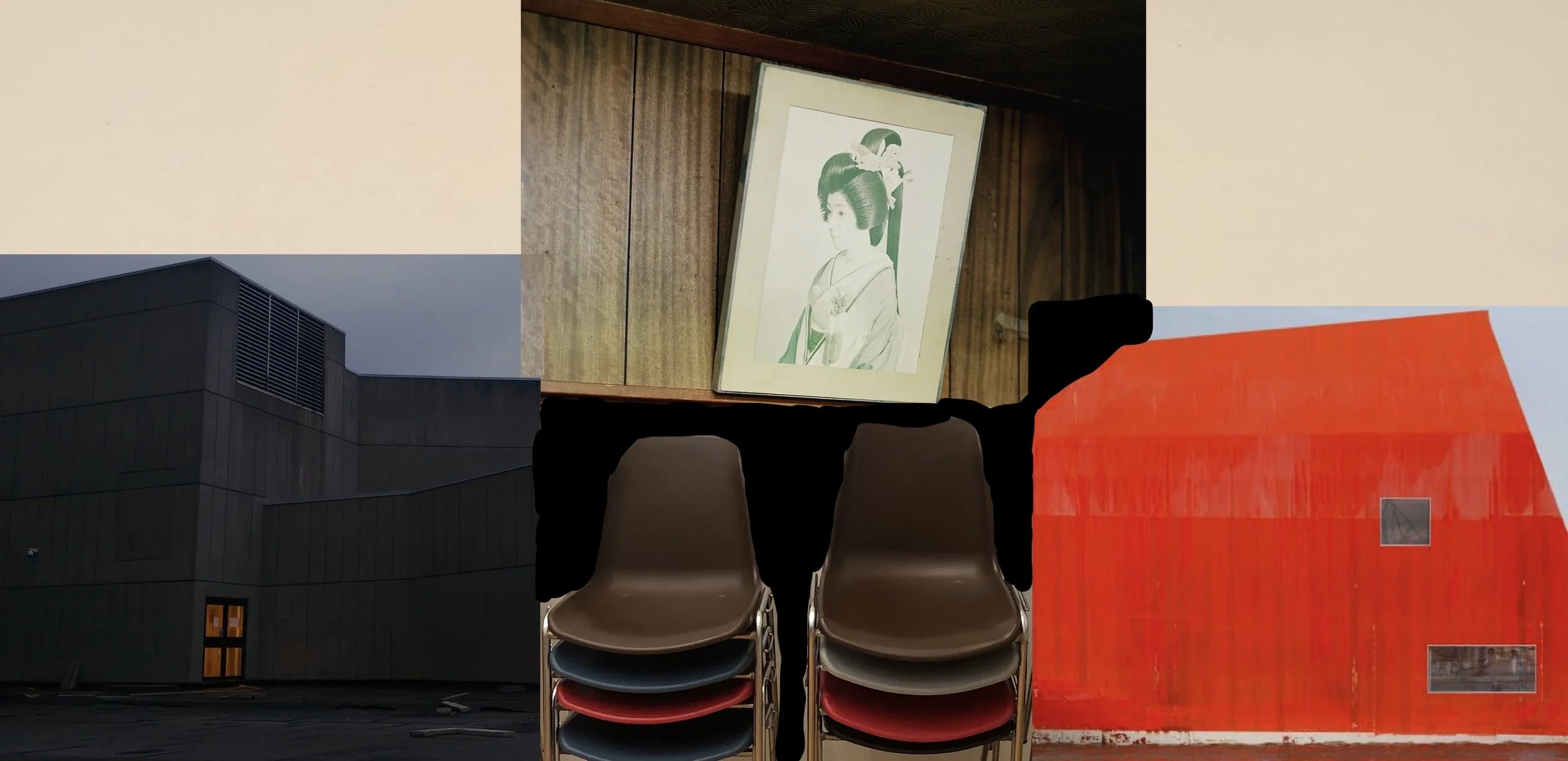C*mme des Hôtels
Steel and glass is hard. Hotel is soft, like the heart of a reed that grows by a lake. It tastes sweet.
Movie stars had faces, once. People once had reputations, especially girls. Corporations were known for the product they produced, especially if they produced it better than their competition. Now, all that's required is a brand. Doesn't matter what the brand is, or rather, was recognized for, it's recognition itself that counts.
Checkout time is when the shadows turn green. Like unripe banana.
Had to happen sooner or later. The fashion industry, loath to miss out on profits by clinging exclusively to the rag trade, has broken into the hospitality business.
Pay what you wish. Wish what you pay. Leave a sock in the MiniBar. A purple sock.
Latest to join the fashion-hotel fray is an avant-garde Asian fashion designer who made her name with jackets infected with tumors, unthinkable pattern combinations, asymmetrical cuts, and a perfume distilled from raw sewage.
Guest is like holy monkey. Holy see, holy do. Eat banana. It tastes squishy.
Just as her boutiques avoid anything that might smack of shops, her hotel refuses to conform to standard ideas of what a hotel looks like, or which services might be provided therein.
Room Service is heaven. Wear black.
The designer expresses her hotel philosophy in abstruse epigrams.
Only photographs are inscrutable.
***
C*mme des Hôtels
Le stelle del cinema una volta avevano dei visi. Le persone in passato avevano una reputazione, soprattutto le ragazze. Le aziende erano riconosciute per il prodotto che producevano, specialmente se lo producevano meglio della loro concorrenza. Ora l'unica cosa che conta è il marchio. Non importa per che cosa è, o meglio, cosa fosse conosciuto, basta che sia riconoscibile.
Acciaio con vetro è duro. Hotel è morbido, come l'anima di una canna che cresce sulla sponda di un lago. Il suo sapore è dolce.
Prima o poi doveva succedere. L'industria della moda, avida di possibili profitti cross-licensing, si è lanciata nel commercio dell'ospitalità.
L'ora del checkout è quando le ombre diventano verdi. Come banana acerba.
Ultima a buttarsi nella mischia hotel di moda è una stilista d'avanguardia asiatica, diventata celebre per le sue giacche infette da tumori, eccentriche combinazioni di fantasie e un profumo distillato da liquame non trattato.
Paga ciò che vuoi. Desidera ciò che paghi. Lascia un calzino nel MiniBar. Un calzino viola.
Come le sue boutique si rifiutano di conformare all'estetica di negozio, il suo hotel scarta le idee convenzionali su come dovrebbe apparire un albergo, e quali servizi dovrebbe fornire.
I vestiti sono uno zerbino drappeggiato sul corpo. Usa con delicatezza le scarpe.
La stilista esprime la sua filosofia hoteliera in astrusi epigrammi.
Il servizio in camera è il paradiso. Vèstiti di nero.












